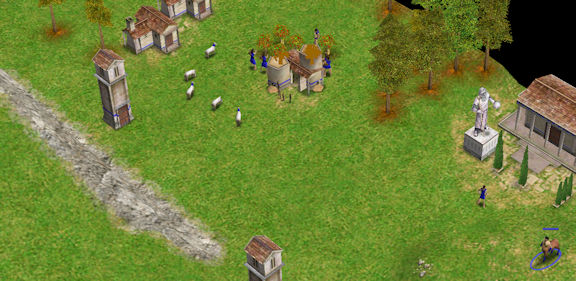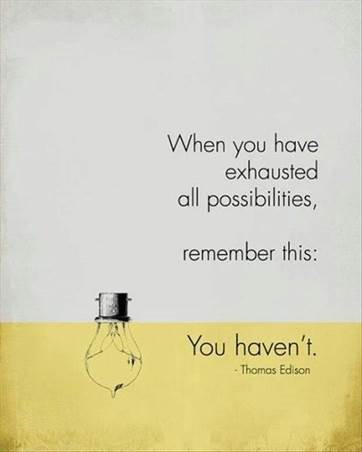I sometimes have imaginary chats with my younger selves, as I’ve described in past blog posts. That can be a helpful way to gain insight. One of those past selves has not been much fun to be around, though. Like a ghost, she haunts creepy corridors of the mind that lead away into darkness, wailing about long-ago hurts and betrayals. Her world is full of lurking enemies who might strike at any moment. Put in psychological terms, she is what Jung called the Shadow—that part of the subconscious where anger, fear, and other unpleasant emotions are kept for protective purposes, rather like a bad-tempered watchdog.
My Shadow-self roams at will through various time periods; she is not tied to childhood or to any particular incident. I generally picture her as thirty-something and angry about having been treated unfairly in one way or another. She doesn’t offer much in the way of constructive suggestions, given the fact that most of her grudges inhabit the distant past and there’s nothing useful that can be done about them now. All the same, that doesn’t stop her from wanting to yell about them anyway.
I couldn’t shut her up with positive thinking and reminding myself that all is well in the present. She just kept on muttering and grumbling to herself as she paced those dark hallways of the mind, occasionally rushing up to the ramparts in great alarm to scream about an invading horde of barbarians. When that wasn’t enough to get my attention, she resorted to splattering my dreams with nasty, gory nightmares. I finally decided there wasn’t much choice but to sit down and have a talk with her.
Because of her perspective that the world is always full of battles, I decided a suitable place for this conversation would be the landscape of an old computer game, Age of Mythology. It’s an empire-building game in which the armies include mythological creatures.

Bright sunshine blazed from an ancient Greek sky. Birds sang in the soundtrack. A centaur, armed with a bow, stood sentry duty near a temple of healing. Watch towers overlooked quiet fields where peasants picked berries and goats grazed. The scene was about as peaceful as it could get in a war game.
Spreading out a blanket on the soft grass beside the temple for a picnic, I gave the centaur a fresh fig and looked around for Dame Shadow. Garbed like a warrior queen in a deep blue dress with a dagger in her belt, she was striding impatiently from one tower to the next, gazing up at the soldiers inside to make sure they were properly attentive. When she came my way, I gave her a wooden plate with bread, cheese, olives and figs, in keeping with the surroundings. Two cups filled with wine sat on a stone; the centaur looked longingly toward them, but because he was on duty I didn’t offer him any wine.
Dame Shadow bit into the crusty bread and chewed for a while, scowling at a far-away smudge of dust on the horizon where an enemy army was on the march. Then she turned abruptly to face me and snapped, “It’s about time you started listening to what I have to say. You’re always acting like everything is fine and it’s all just a game—but the world really is a dangerous place, I tell you! It’s full of nasty enemies, and if you let down your guard for so much as an instant, they might get you!”
I put down the olive that I’d been about to eat. “Okay, so you want me to be more on my guard by doing what, exactly?”
“Trust no one!” Dame Shadow shrieked, jabbing an accusing finger toward me. Startled, I flinched out of reflex, and the olive rolled into the grass. A raven perched in a nearby tree screeched as if answering.
“Haven’t you learned by now that whenever you expect people to be kind and helpful, they end up hurting you instead? Maybe you think they have good intentions—but even if they do, how long is that going to last? Besides, what’s to stop them from doing something bad out of carelessness, ignorance, and wrong assumptions, even if they mean well? It happens all the time. You’ve heard that old saying about what the road to hell is paved with.” To illustrate the point, Dame Shadow stamped a dusty, sandaled foot on the stones of the temple courtyard. A peasant who was praying to an idol gave her a nervous sidelong glance.
I picked up my wine cup and drank slowly, putting my thoughts together before I gave her a reply. “Yes, things are always changing and people make mistakes. That’s all true, as far as it goes. How well or poorly something turns out in the long run depends on your time horizon, though, and how far you go in tracing the chain of cause and effect.”
She frowned in response, turning her head to gaze once more toward the blur of hostile soldiers marching in the distance. The dust had started to settle as they moved on by.
“You can be sure they’ll get here after a while, even if it doesn’t happen right away,” she said, waving her right hand generally in that direction. When it came back down, her fingers rested lightly on the hilt of the dagger. “They always do.”
A marauding army wasn’t likely to roam through my quiet suburban neighborhood, I thought, unless maybe it was a herd of hungry deer attacking the shrubbery. Of course, a snide remark like that wouldn’t have been at all constructive, so I just ate another olive while reflecting further on what was going on here.
“Building these defenses must have been quite a lot of work,” I finally acknowledged, as I looked around at Dame Shadow’s towers and military buildings. “You certainly put plenty of time and careful planning into them. Wanting to be recognized and appreciated for your effort is only fair. I haven’t shown enough gratitude for all your hard work on my behalf; and for that, you have my apologies.”
Her face softened, as much as it could with the rough frown lines etched into it. “Everything that I’ve done, for so many years, has been for you,” she declared, holding her hands widely apart to encompass all of the surrounding landscape.
“Yes, I understand. From now on, whenever you have something to say, I promise to give it respectful and fair consideration.” Picking up my wine cup, I raised it in a pledge.
Just then, a horn sounded in one of the watch towers. Dame Shadow glanced quickly in that direction before turning to give orders to the centaur. “Manticores are attacking! We must loose the Medusas!”
After the centaur galloped away, his hoofbeats echoing from the rocks of a nearby cliff, Dame Shadow turned back toward me with a cheerful grin. “A few stone manticores would be just the thing to strike fear into the enemy’s hearts, wouldn’t you say?”
“Definitely, and I’ll keep in mind the importance of having suitable defenses going forward.” Smiling back at her, I started to clean up what was left from the picnic, getting ready to make my way home.








